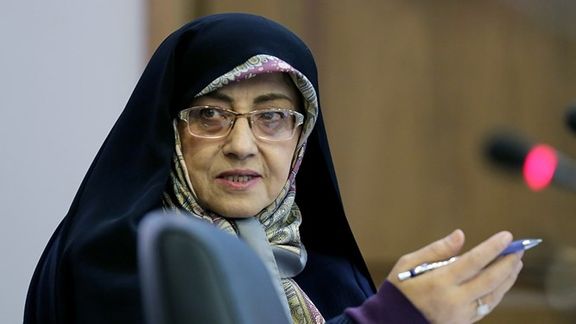Iranian Politicians Worried About Rising Radicalism After Elections

An increasing number of Iranian politicians have sounded alarms regarding the resurgence of the menace they call the "Ahmadinejad Era" in recent articles and interviews.

An increasing number of Iranian politicians have sounded alarms regarding the resurgence of the menace they call the "Ahmadinejad Era" in recent articles and interviews.
Political activists from various ideological backgrounds have cautioned against the resurgence of radicalism in Iranian politics following the victory of ultraconservatives in the parliamentary elections.
Ashraf Boroujerdi, a former presidential aide during President Hassan Rouhani's tenure and a scholar specializing in humanities and cultural studies, expressed concern to Etemad Online. She highlighted the parallels between the current Iranian government and the new parliament and the populist ultraconservative administration of President Mahmoud Ahmadinejad (2005-2013) and the first parliament after reformists lost power to conservatives in 2004.
Ahmadinejad’s 8-year presidency was marked by populist slogans, a radical foreign policy that brought on international sanctions and the squandering of nearly $600 billion in oil income. During the first six years of Ahmadinejad’s presidency, Iran was not affected by any oil export sanctions and international crude prices were at their height, touching $120 per barrel.

Although the former president noticeably changed his political position in recent years, criticizing the regime, but his period is seen as the beginning of economic and social welfare decline.
Boroujerdi warned that the current government and the new parliament are likely to replicate the issues that afflicted Iran's political landscape and economy during the 2010s under an ultraconservative regime. She emphasized that “a government that enacts laws against the will of the people and relies on their votes to pass such legislation is destined to fail.”
Moreover, Boroujerdi noted a growing disillusionment among the populace. "More and more people turn away from the government after every election. So, the system needs to seriously re-consider its decisions and the way it interacts with the people." She added that "Even some of those who voted in the latest election in Iran did so only to have their IDs stamped by the officials as they needed that for the survival of their business and livelihood."
Similar to many other analysts, she attributed most of Iran's problems to the ultraconservative factions that have held power since the 2010s, hindering the country's progress. Boroujerdi also highlighted how Ahmadinejad's denial of the Holocaust policy further isolated Iran on the international stage.
Meanwhile, conservative political figure Abbas Salimi Namin suggested that some newly elected ultraconservative MPs ascended to power through smear campaigns against their political opponents. He urged these MPs to set aside their differences and prioritize the nation's interests.
Namin cautioned against political conflicts and radicalism within the parliament, noting instances where certain MPs had already caused tensions by attacking their colleagues, drawing warnings from both the public and Iran's Supreme Leader. He emphasized that continued smear campaigns would not garner popular support and stressed the importance of efficiency in parliamentary proceedings.
In another development, lawmaker Massoud Pezhkian, whose seat in the next parliament was secured due to intervention from Supreme Leader Ali Khamenei, warned against the long-term viability of lawmakers elected on radical platforms. Pezhkian cited Amir Hossein Sabeti, a hardline former TV presenter, as an example, questioning his qualifications and educational credentials.
Pezhkian cautioned against the dangers of populism, highlighting instances where officials and lawmakers made lofty promises without delivering tangible results. He specifically referenced President Raisi's pledge to build four million houses in four years, asserting that such promises often fall short due to the complexities of governance and practical constraints.